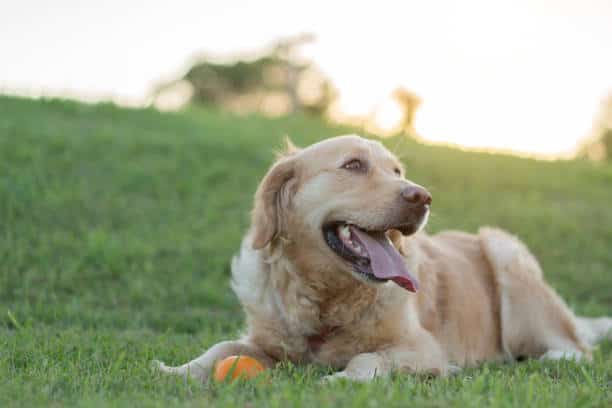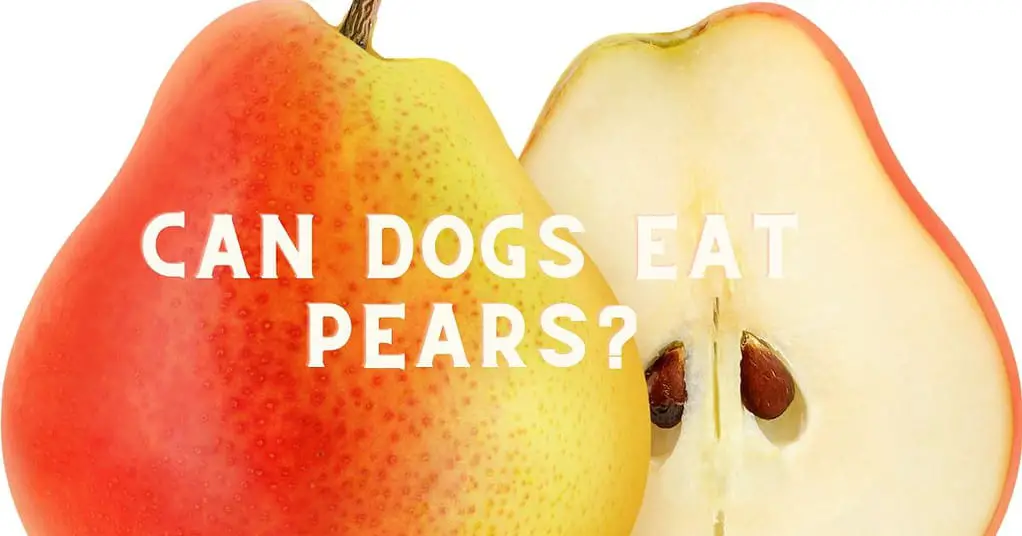While we know oranges are a bundle of vitamins and nutrients for us, but can dogs eat oranges? Oranges, clementines, and citrus fruits are not toxic for dogs, but do feed them in moderation and only the fleshy part. Avoid grapes and raisins at all costs. This guide unpacks everything you need to know about the pros and cons of sharing this sweet treat with your pup.
Are Oranges Good For Dogs?
Dogs can safely eat oranges, but it should be done in small amounts and cautiously to prevent stomach upset.
Nutritional Content Of Oranges
Oranges are a powerhouse of nutrition, making them beneficial for humans and potentially for our four-legged friends. They are packed with essential nutrients like potassium, an electrolyte that helps maintain fluid balance and proper muscle function in dogs.
Another notable nutritional component is vitamin C, which boosts the immune system and fights diseases. Fiber is also present in a piece of orange. It promotes a healthy digestive tract by adding it to your dog’s diet and helping regulate bowel movements.
However, limitation is key due to their sugar content—excessive amounts can lead to gastrointestinal upset in dogs. Therefore, while considering introducing oranges into your pet’s routine snack rotation, it’s crucial to understand these nutritional aspects fully.

Health Benefits Of Oranges For Dogs
Oranges are safe for your dog and offer several health benefits. They are packed with potassium, fiber, and vitamins that can support their immune system and overall well-being.
Electrolytes
Oranges aren’t just a source of vitamins for your pet; they’re also packed with essential electrolytes. Potassium, in particular, plays a critical role in your dog’s health.
This vital nutrient promotes proper muscle and nerve function while supporting the overall balance of fluids in the body. It helps stabilize their heart rate and aids in digestion.
So, giving dogs oranges boosts their immune system and improves their lifelong health. However, like any other fruit for dog food, it must not be given in large amounts to avoid digestion issues or an unhealthy spike in sugar levels.
Vitamin C
Oranges are packed with vitamins that are not only beneficial for humans but can also benefit our furry friends. It helps protect your dog against illnesses and promotes overall well-being.
Dogs synthesize vitamin C but may require additional amounts during stressful situations or illness. It can be found in moderate oranges servings and will not harm dogs.
Just be mindful to keep these citrusy treats as part of a balanced diet while maintaining consistent health checks for your pooch.
The right balance ensures they reap the benefits without suffering digestive upset or weight gain from overconsumption.
Soluble Fiber
Soluble fiber, found in oranges, is an essential nutrient for dogs. This type of fiber helps support a dog’s digestive tract by promoting the growth of beneficial gut bacteria and improving overall digestion.
It is also known to help regulate blood sugar levels and maintain healthy cholesterol levels in dogs. Including oranges in your dog’s daily diet can ensure they fulfill nutritional needs.
While dogs can eat oranges, they don’t eat orange peels as they pose a choking hazard. So give your dog an orange without peels.
Flavonoids
Flavonoids are natural compounds in oranges. These plant-based antioxidants and anti-inflammatory agents have been shown to support a dog’s overall well-being.
Flavonoids help protect against oxidative stress and reduce the risk of neurodegenerative diseases like Alzheimer’s and dementia. Adding oranges to your furry friend’s diet gives them a tasty treat and beneficial flavonoids that promote their long-term health.
Monitor your dog for any adverse reactions and consult your veterinarian if you have concerns about incorporating oranges into their diet.
How Many Oranges Can Dogs Eat?
The way dogs digest oranges depends much on their size and breed. For instance, dogs like Husky may eat two to three segments of an orange daily. However, the same may not work for a pomeranian.
As per reports, feeding your dog one or two segments or an orange daily is best. Here are some guidelines based on a dog’s breed and weight that can be followed –
| Weight And Breed | Orange Segment |
| Extra Small Dog (2-20 Lbs ) Pugs, Pomeranians, Chihuahuas, etc. | 1/2 Segment |
| Small Dog ( 21-30 Lbs ) Beagles, Basenjis, etc. | 1/2 Segment |
| Medium dog ( 31 – 50 Lbs ) Border Collies, Basset Hounds, etc. | 1 Segment |
| Large Dog ( 51 – 90 Lbs ) Labrador Retrievers, German Shepherds, etc. | 1/2 Segments |
| Extra Large Dog ( 90 Lbs + ) Great Pyrenees, St. Bernards, etc. | 2 Segments |
Different Ways To Feed Organges To Your Dog
Are you looking for unique ways to feed an orange to your dog? Remember to wash the fruit, peel its cover, and remove the seeds before feeding via the methods below.
- Fruit Yogurt – Mash ½ segment of orange and blend it with plain yogurt. You can also add other dog-safe fruits for a tasty treat.
- Food Topper – You can chop a segment of orange and serve it with your usual dog food. They are likely to enjoy the citrus serving.
- Smoothie – Prepare a fruit smoothie by mixing orange, strawberries, and blueberries. You can use it as a food topper or serve it as a treat alone.
- Kong Toy – Another smart way of feeding your dog an orange is by blending a few pieces and freezing them in a Kong Toy.
Can Oranges Be Bad For Dogs?
Giving dogs oranges can pose potential risks and should be done with caution. An orange peel, seeds, or pith can cause digestion tract obstruction. Also, swallowing a whole orange may lead to choking hazards. Too much orange consumption can upset a dog’s stomach and spike sugar levels.

Can Dogs Eat Orange Peels, Seeds, Or Pith Of Oranges?
Feeding your dog oranges can provide them with essential nutrients and health benefits. However, be aware of the potential risks associated with certain parts of the fruit.
- Orange Peel: The peel of an orange can be difficult for your puppy or dog to digest. It’s also tough and can pose a choking risk, especially for small dogs. As pet parents, ensure your dog doesn’t consume the peel to prevent stomach issues.
- Orange Seeds: Orange seeds present a choking hazard. They may cause intestinal blockage if ingested in large quantities. Make sure to remove all seeds before you serve oranges to your pup.
- Pith: The pith is the white part of the orange between the skin and flesh. It can cause stomach upset due to its high fiber content. While small amounts are good for your dog, excessive consumption can result in digestion problems.
Is Swallowing Whole Oranges Good For Dogs?
Feeding a dog a whole orange can pose various risks. Dogs may be tempted to swallow the orange without adequately chewing it, leading to digestion issues like upset stomach, vomiting, or diarrhea.
The high fiber content in oranges combined with swallowing them whole increases gastrointestinal upset chances. Furthermore, the seeds and pith of oranges can cause blockages or obstructions irrespective of the size of your dog. However, the smaller dogs have a higher risk.
Always remove the skin and seeds from an orange before offering. Taking these precautions allows you to safely share this juicy fruit with your canine companion while avoiding adverse reactions.
Upsetting Their Stomach
Oranges are generally considered good for dogs. However, the moderate sugar content in these fruits can cause gastrointestinal distress if consumed in large quantities.
Dogs have a sensitive digestion system; consuming excessive oranges can lead to vomiting and diarrhea. Introducing oranges slowly into a dog’s diet and monitoring their reaction is important.
If a dog shows any signs of unusual behavior or discomfort after consuming oranges, it is best to stop feeding them immediately.
Spiking Blood Sugar Levels
Feeding dogs oranges may cause a spike in their sugar levels. While oranges are not toxic to dogs, remember that canines have different dietary needs than humans.
The natural sugars in oranges can quickly be absorbed into a dog’s bloodstream, potentially increasing its levels. This can be problematic for dogs with diabetes or those at risk of developing the condition.
To prevent any adverse effects, limit the intake of oranges and treats to no more than 10 percent of the dog’s daily calorie intake. Being mindful of portion sizes ensures your pet enjoys the benefits without any negative consequences.

How To Properly Feed Oranges To Dogs?
To properly feed oranges to your dog, remove the fruit’s skin and all seeds before offering it as a treat or food topper.
- Peel the orange: Remove the skin of the orange before offering it to your dog. The skin can be difficult for dogs to digest.
- Remove all seeds: Remove any seeds from the orange as they can pose a choking risk.
- Cut into small, bite-sized pieces: Slice the orange into small, manageable pieces that are easy for your dog to chew and swallow. This reduces the risk of choking and makes it more enjoyable for them to eat.
- Serve in limits: While oranges are a healthy snack, they should still be given in small amounts. Too much citrus fruit can upset your dog’s stomach or contribute to weight gain.
- Offer as an occasional treat: Oranges should not replace a balanced diet for your dog. They should be offered as an occasional treat and other safe fruits and vegetables for dogs.
Every dog is different, so it’s essential to introduce new foods slowly and monitor their reaction.
Can You Give Your Dog Many Oranges?
Dogs can enjoy the occasional sweet treat of oranges. Dogs should only consume a small amount of oranges to avoid potential issues. Limiting your dog’s orange intake to one or two daily segments is a good rule of thumb. Dogs should not eat too many oranges at once.
Considerations For Different Types Of Oranges And Citrus Fruits
Different oranges and citric fruits, such as mandarins, tangerines, and clementines, have similar health benefits and potential risks for dogs. Note that other citrus fruits like grapefruit, lemon, and lime can have different levels of citric acid and may have varied reactions.
Mandarin Oranges, Tangerines, And Clementines
Mandarin oranges, tangerines, etc., are safe and healthy fruits that dogs can have in moderation. These fruits are rich in vitamins and minerals, supporting a dog’s immune system and overall health.
They also contain soluble fiber, aiding digestion and promoting gut health. However, these fruits should be given to dogs in small quantities, typically one or two daily segments.
Also, every dog can have different preferences regarding the taste and smell of these fruits. While the skin of these fruits is not bad for dogs, it should be removed. It can pose a risk of digestion tract obstruction if ingested.
Other Types Of Citric Fruits
Caution should be exercised when feeding dogs other citric fruits, like grapefruits, lemons, and limes. While a small piece of orange may offer some health benefits, these citric fruits can affect a dog’s health and digestion differently.
Each dog reacts differently to certain fruits, and what works for one dog might not work for another. When introducing new fruit into your dog’s diet, consult a veterinarian first to ensure the best choice for your furry friend’s wellbeing.
Can Dogs Drink Orange Juice?
Orange juice is not recommended for dogs due to its higher sugar and citric acid content. While oranges can be a healthy treat for dogs, the concentrated form in the juice may not sit well with their digestive systems.
The high sugar content in orange juice can lead to weight gain and potentially even diabetes in dogs if consumed excessively. The citric acid in the juice can cause gastrointestinal upset and discomfort. It’s best to stick with fresh oranges or other dog-friendly fruits as a healthier alternative for your canine companion.
Does Much Orange Cause Orange Poisoning In Dogs?
Orange poisoning in dogs can occur if they consume excessive oranges. They can be acidic and difficult to digest.
Diagnosing Orange Poisoning
If you suspect your dog has orange poisoning, it is crucial to seek immediate veterinary care. The symptoms of orange poisoning in dogs can vary depending on the amount consumed and the individual dog’s sensitivity.
Some common signs include vomiting and gastrointestinal upset. In severe cases, your dog can exhibit unusual behavior or show signs of abdominal pain. A veterinarian will diagnose orange poisoning through a physical examination and by any known ingestion of oranges or citrus fruits.
Treatment options depend on the severity but may involve supportive care to alleviate symptoms and prevent further complications. Prevention is key to protecting your pet from hazards like toxic foods.
How To Manage Orange Poisoning?
If your dog accidentally ingests excessive oranges or exhibits symptoms of orange poisoning, seek veterinary care immediately. Treatment for orange poisoning in dogs may include:
- Inducing vomiting: If the ingestion occurred within the last hour, your veterinarian might induce vomiting to remove any remaining oranges from your dog’s stomach.
- Activated charcoal administration: Activated charcoal can help absorb toxins in the stomach and prevent their absorption into the bloodstream. This may be administered orally or via a feeding tube.
- Fluid therapy: Intravenous fluids may be administered to prevent dehydration and support organ function during detoxification.
- Symptomatic treatment: If your dog experiences gastrointestinal upset like vomiting or diarrhea, medications may be prescribed to alleviate these symptoms and provide comfort.
- Monitoring and observation: Your veterinarian will closely monitor your dog’s condition, checking for signs of improvement or further complications.
Other Fruits That Are Safe For Dogs
- Apples: Rich in vitamins A and C, as well as fiber. Remember to remove the seeds and core before feeding your dog.
- Bananas: A great source of potassium and vitamin C. Make sure to remove the skin.
- Watermelon: Hydrating and low in calories. Remove the seeds and rind, and feed in moderation.
- Blueberries: Packed with antioxidants and high in fiber. These can be given as a tasty treat or added to your dog’s food.
- Strawberries: Full of vitamins C and B6, as well as fiber. These fruits are safe, but remove the leaves before feeding.
- Broccoli: Contains vitamins A, C, and K, as well as fiber. Cooked or steamed broccoli is best for dogs.
- Brussels sprouts are high in vitamins A, K, and C and fiber. Cooked Brussels, sprouts are easier for dogs to digest.
- Carrots: Crunchy and rich in beta-carotene. Raw or cooked carrots are safe for dogs.
are oranges bad for dogs?
Dogs can safely enjoy oranges as a healthy and nutritious snack. Orange contains vitamins and minerals like potassium, fiber, and vitamins, which can benefit their health.
However, it is best when dogs have oranges without skin and in small amounts to prevent digestion issues. So share an orange slice with your dog for a refreshing treat! while dogs like oranges, be careful with your diabetic dogs.
FAQs
1. Can dogs and puppies eat oranges?
Yes, dogs can safely eat oranges in moderation. Oranges are a good source of vitamins and minerals, but they should be given as an occasional treat, not a regular part of their diet.
2. Are all parts of the orange safe for dogs to eat?
While the flesh of the orange is safe for young or adult dogs to eat, you should avoid giving them the skin or seeds. The fruit’s skin can be difficult to digest and cause gastrointestinal upset, while the seeds pose a choking risk.
3. Are there any potential risks or side effects associated with giving oranges to dogs?
Giving oranges excessively or too frequently may lead to digestion issues due to their high acidity content. Additionally, some dogs may have individual sensitivities or allergies to citrus fruits. So observing your dog’s reaction when introducing new foods is important.
4. How should I prepare oranges for my dog?
Before offering an orange slice to your dog, make sure you remove the peels and seeds first. It’s best to wash the fruit thoroughly and cut it into small pieces that are easy for your dog to chew and swallow safely. Treats like oranges should only comprise a small portion of your dog’s diet.
Author Profile
- Site Owner And Planning Specialist
-
Aritra, the founder of Labradorandyou.com, is a lifelong dog lover whose passion ignited for Labradors for their loyalty and intelligence. With extensive research and personal experiences, Aritra has become a Labrador expert, offering a rich resource on the breed. Labradorandyou.com provides reliable, timely, and evidence-based information, including Labrador-specific product reviews, training techniques, and care tips.
Labradorandyou.com was born out of Aritra's passion and his desire to share his profound knowledge about the breed. The site serves as a comprehensive resource, offering a wealth of up-to-date information for Labrador owners and enthusiasts alike
Also by the author
-
 FAQNovember 17, 2023How To Adopt An Emotional Support Dog?
FAQNovember 17, 2023How To Adopt An Emotional Support Dog?
-
 Mix-BreedsNovember 16, 2023Red Labradoodle Ultimate Guide: Breed Facts, Care Tips
Mix-BreedsNovember 16, 2023Red Labradoodle Ultimate Guide: Breed Facts, Care Tips
-
 Top BreedersNovember 8, 2023Breeding Labradors: Everything You Need to Know
Top BreedersNovember 8, 2023Breeding Labradors: Everything You Need to Know
-
 FAQOctober 17, 2023Do Dogs Like Music? Researchers Say Yes! Find Out
FAQOctober 17, 2023Do Dogs Like Music? Researchers Say Yes! Find Out





